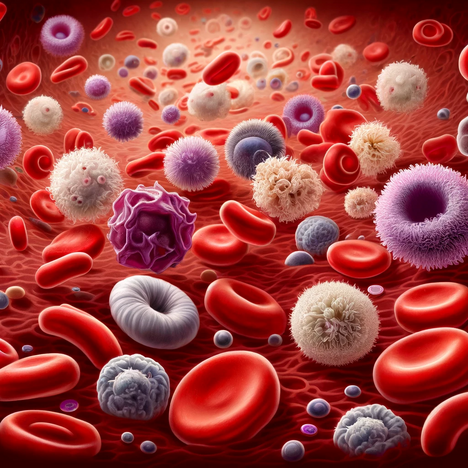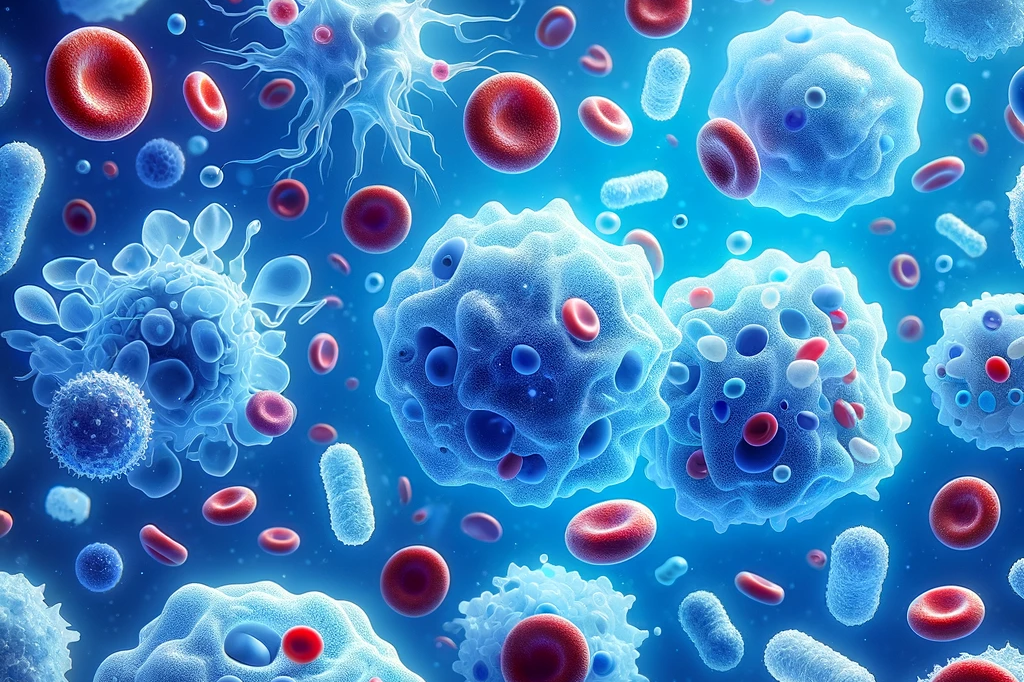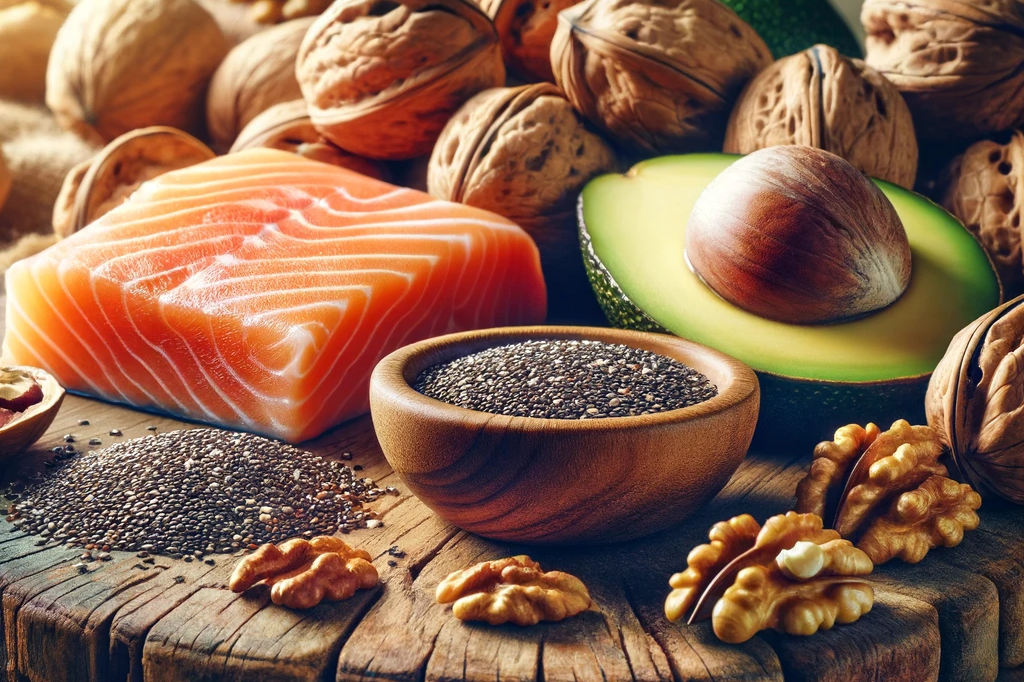Interleukins

Interleukins play a central role in the immune system of our four-legged friends. These small but powerful proteins act as messengers between cells and have a crucial function in the regulation of immune responses. However, as with many aspects of medicine and biology, there is a downside. In this article, you'll find out exactly what interleukins are, what benefits they can have for your dog's health and what potential risks their dysregulation entails.
What are interleukins?
Interleukins are a group of cytokines that are produced by leukocytes (white blood cells). They are essential components of cell communication in the immune system and play a key role in the initiation, control and termination of inflammatory reactions. Interleukins can have pro-inflammatory or anti-inflammatory effects, depending on their type and the context of their release.
The role of interleukins in canine health
Interleukins are essential for a healthy immune response. They help your dog's body to respond effectively to infection, injury and disease. Their roles include:
- Activating and directing immune cells to sites of infection.
- Supporting the production of antibodies.
- Regulating the inflammatory response to minimize tissue damage.
Benefits of interleukin regulation
Improved immune response
Well-regulated interleukin activity ensures a rapid and effective immune response against pathogens, directly supporting your dog's health and well-being. This is particularly important for dogs with weakened immune systems or for older dogs.
Protection against autoimmune diseases
Maintaining a balance between pro-inflammatory and anti-inflammatory interleukins can protect your dog's body from autoimmune diseases, where the immune system mistakenly attacks healthy tissue.
Healing and regeneration
Interleukins play a crucial role in the healing of wounds and the regeneration of tissue. They support the formation of new tissue and help to control and stop inflammatory reactions as soon as they are no longer needed.
Potential disadvantages and risks
Chronic inflammation
Overproduction or inadequate regulation of pro-inflammatory interleukins can lead to chronic inflammation. These can be the cause of a variety of diseases, including arthritis, skin conditions and even certain forms of cancer.
Autoimmune diseases
Dysregulation of interleukin activity can also contribute to the development of autoimmune diseases, where the immune system attacks healthy tissue, which can lead to chronic pain and damage.
Drug side effects
Treatment of conditions associated with interleukin dysregulation often requires the use of drugs that suppress the immune system. These can have significant side effects and affect your dog's ability to respond to other diseases.
A balancing act for health
Interleukins are essential for maintaining your dog's health and well-being. They play a central role in regulating the immune response and healing tissue. However, as with everything in life, balance is key. Dysregulation, whether through overproduction or deficiency, can lead to a variety of health problems. By eating a balanced diet, exercising regularly and keeping up with check-ups, you can help keep your dog's immune system strong and their interleukin activity in balance.
If you notice any signs of hypersensitivity or poisoning in your dog, you should see your vet immediately. We are not a substitute for a vet, but we try to be as accurate as possible. Every dog reacts differently and we recommend you get a second opinion or consult your vet if in doubt.
Stay healthy and take good care of your four-legged friend!😊
Similar to Interleukins
Histamine is a biogenic amine compound that is found in many body tissues and plays a role in various physiological processes. It is mainly stored in mast cells and basophilic leukocytes and is...
Leukotrienes are a group of inflammatory mediators that are produced in white blood cells or leukocytes. They are involved in various inflammatory and allergic processes and can trigger similar...
Thromboxane A2 is a substance produced by blood platelets and plays a key role in blood clotting and the regulation of blood vessels. It promotes the clumping of platelets (platelet aggregation) and...
Polyunsaturated fatty acids are a type of fat found in many food sources and are vital for dogs. Unlike saturated fatty acids, which are solid at room temperature, PUFAs are liquid at room...



